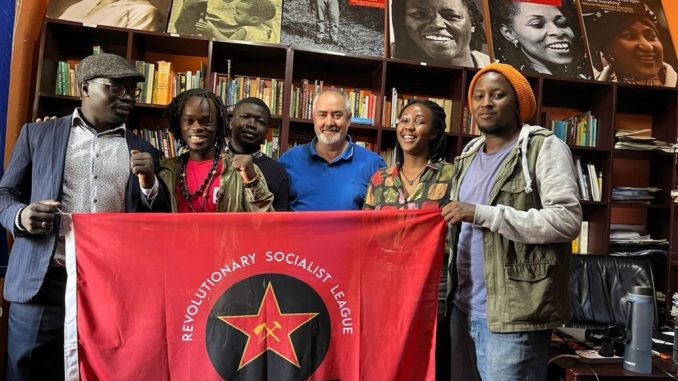
Our comrade Alejandro Bodart, leader of the MST and the ISL, visited Nairobi, Kenya, invited by the Socialist Revolutionary League, and participated in various activities as part of a very successful tour. The RSL is an important revolutionary socialist organization that decided to actively join the construction of our international organization at the 1st World Congress of the ISL that was held late last year. We publish here an interview with three of its leaders, comrades Ezra Otieno, Lewis Maghanga and Ochievara Olungah, to learn about the political situation in Kenya and the African continent, their main proposals and how the LSR was formed.
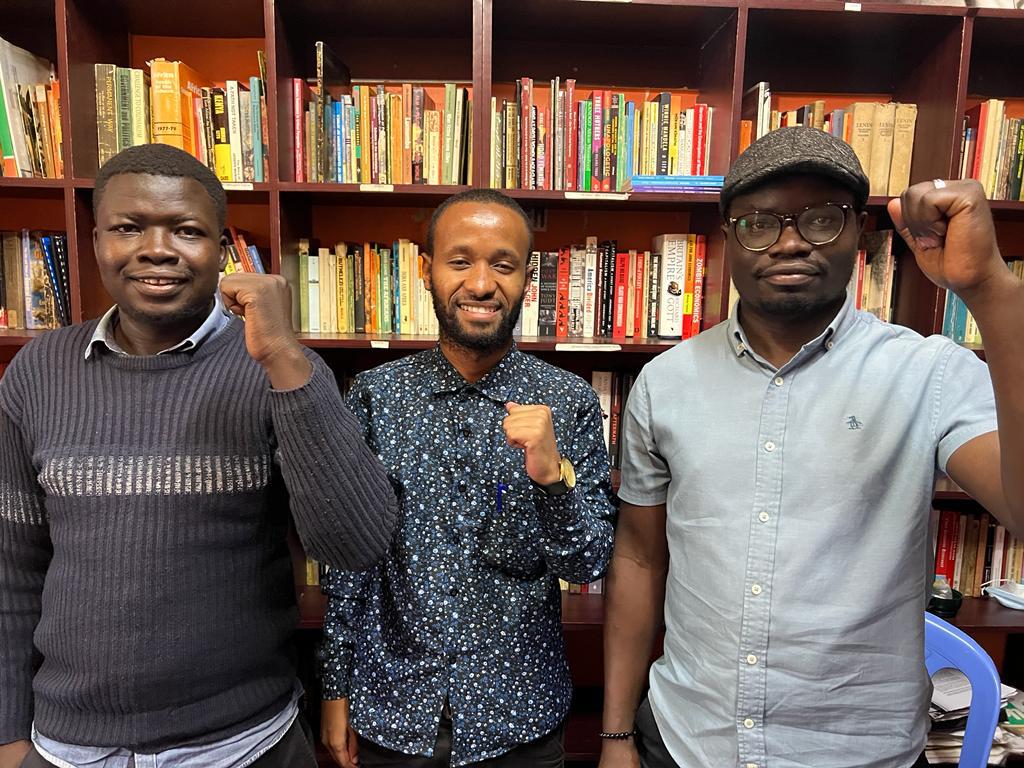
What can you tell us about the political and social situation in Kenya?
Kenya gained its independence from England in 1963, conquered by the armed struggle led by the Mau Mau, the Kenya Land and Freedom Army. But they were outlawed after independence, because the people who took over were puppets of the British government. The first president was Jomo Kenyatta, who usurped what the people had fought for. He took all the land for himself and continued with the British rule as a Black person. Oppression got even worse, killings rose in the 60s and 70s.
When Kenyatta died in 1978, President Moi took over. He had a policy called Nyayo, which means “footprints,” so he was to follow the footprints of Jomo Kenyatta. He was very fascist, very repressive, and implemented the neoliberal system in the 1980s. There was an attempted coup against his regime in 1982, which was thwarted, and he became even more brutal. But this gave rise to a struggle in the 1990s and the left movement grew stronger. The Mwakenya Movement and the December 12 Movement emerged, some of whose comrades are still with us today.
Moi’s regime came to an end in 2002, when the people were just tired and wanted him out. So Mwai Kibai came, who was seen as the best president we’ve had. But not really, because with his government Chinese imperialism entered the country.
In 2013, Kibai could not be re-elected and the son of the first president, Uhuru Kenyatta, became president. He is one of the worst things that has ever happened. People don’t have foor, his regime has been marred by a lot of corruption and state killings.
So we have not come so far in terms of progress from the pre-colonial period. We are under a neo-colonialism, in Swahili we call it Ukoloni mamboleo, we are not in control of our country, it is being controlled by other countries, like the United States and the United Kingdom, but indirectly, they just put puppets as our leaders. Furthermore, Kenya was a settler-colony and the settlers did not go after independence, they are still here. They own large tracts of rich land, they even kill locals with impunity. That’s what we mean by neocolonialism. The white rulers left, but the local structure remains colonial.
In the pre-independence period, the people were fighting for the same things they are fighting for now. The Mau Mau fought for the land, but they did not get it. The land went to the first president, who was the richest man in the country, and his son is the president now. A country where politicians are the richest people is a country which clearly does not care for its people. Today people are living on credit, especially in urban areas. Everything is expensive and is getting worse by the day. So we cannot say that there is something that we have gained as a people since independence. That is why we insist that the system must be changed.
Today the political situation in Kenya is very turbulent. The crisis of neoliberalism is what we really need to talk about, because the masses can’t afford food and basic needs. Housing is very expensive, healthcare is unaffordable for 99% of the citizens. Education is largely privatized, it’s not universal and it’s very unequal. We have a government of the elite.
This being an election year, the politicians are coming all around making promises but we do not trust them, because we know that the system is what needs to be changed, not the politicians. So we want to concentrate on the masses and provide them with political education.
In these elections there are two protagonists. One is called William Ruto, the current deputy president, and the other is Raila Odinga, the opposition leader. They both have lucrative deals about how they are going to improve the welfare of the common people, but they are not really going to do that, because they have been in government before. One is actually the deputy president and the other was prime minister between 2008 and 2013. They say they are going to do something. Why didn’t they do it when they were in government? Odinga is promising to give people US$60 per month if he gets elected, which I don’t think he will do, or if he does it will not be as he says. They just use these proposals as bait for people to vote for them.
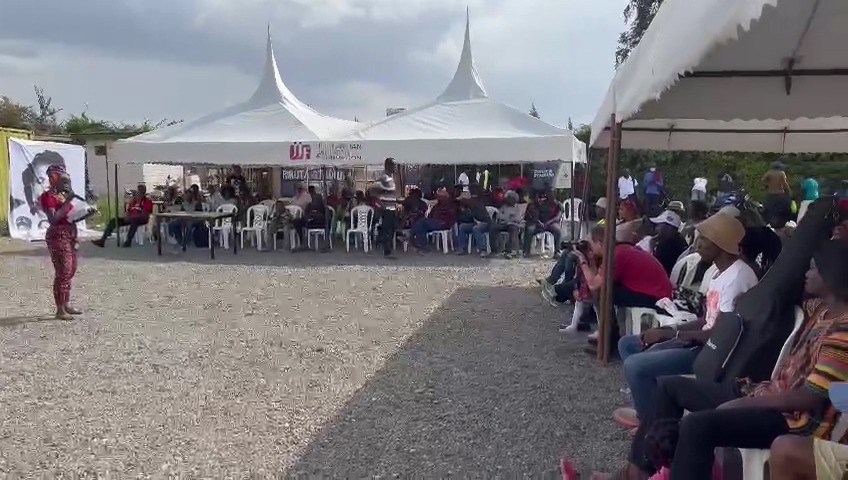
Can you tell us about the political situation in Africa as a whole?
Africa is a continent of 55 countries and at least four territorial islands that are still controlled be the West. The political situation in Africa today is surprising to most. There have been many events across the continent, from South Africa to Egypt, from Somalia to Nigeria, from Morocco to Congo. In this year, 2022, eight countries are supposed to hold elections, but Libya postponed its elections. Mali was supposed to hold elections on 27 February, but there was a coup, the second since the beginning of Corona. Elections had been promised after the coup, but because the French interfered, the elections have been postponed to 2026. Kenya will have elections in August, Somalia in December.
The situation has been corroded by a series of coups in West Africa. In the last five years there have had more than six coups, in Mali, Burkina Faso, Guinea, Sudan, a pseudo coup in which the French imperialists killed the president of Chad and his son was installed as the leader. A coup in Guinea Bissau was recently defeated. These serve one message. Most of the sister countries of West Africa are controlled by French imperialism. Mali has the largest gold reserves in Africa, but it is the French who control the gold there. Recently the president expelled the French ambassador, because the EU had sent soldiers to Mali and the Malian president expelled them and there was a strong backlash against Mali. This is because the coups that took place in Mali and Burkina Faso were led by sectors that are fighting against French imperialism in those two countries, saying that it is better if they control their own affairs. So it is very interesting, because in recent weeks there have been mass protests in Mali against the French and across Africa people are showing solidarity with the people of Mali, because they have said enough is enough. Apart from the coups, we have a strong military presence of the West in West an Central Africa, in Chad, Central African Republic, which is there to ensure the exploitation of resources.
If we look at East Africa, there have been many terrorist attacks in Mozambique, and it was very surprising when the US Army sent the Green Berets. One wonders why; it turns out that there was a lot of strikes there at one of the largest oil refineries in Africa. In Ethiopia, the imperialists tried a coup to overthrow the prime minister. Egypt has a puppet regime supported by the West and Ethiopia is building a dam that may affect Egypt’s access to the River Nile. So a lot of fighting has been going on in Ethiopia between the Tigrayan soldiers, in northern Ethiopia, who have felt left out of the affairs of the country since the 1970s. Ethiopia is an instrumental country in Africa, because its capital was the center of the African Union.
In South Africa there is a lot of fighting about expropriation of land without compensation, with native Black South Africans still feel that since the end of apartheid they have never had control of their land, and in the wake of xenophobic attacks from different parts of Africa, that have always been fueled by the white minority rule in South Africa. More recently there were massive mobilizations against femicides; statistics show that almost nine women are being killed on a daily basis in South Africa, Namibia, Botswana and the region.
In North Africa, where the Arab Spring swept away authoritarian regimes in Algeria, Tunisia, also Egypt, and in 2016 students in Sudan rebelled against the extreme austerity measures that the Omar al-Bashir government was subjecting the people to. And the president responded by forming a militant wing of the army, made up of fascists from his own tribe. So once Omar started perpetrating state terrorism against the citizens, the people united with the students in the fighting and the process reached a climax in 2019. But then the liberation fighters made a mistake by uniting with the Communist Party. They got rid of the government of Omar al-Bashir but trusted the “professionals” of the CP, who had not participated in the rebellion. Once these “professionals” came into power, they negotiated with the army, which promised to call elections a few months later. But they have never been called until today. Then the people realized that they trusted the wrong people and mobilized again in 2020, but the army defeated them. It serves as a lesson that without a conscious revolutionary vanguard it is very difficult to triumph.
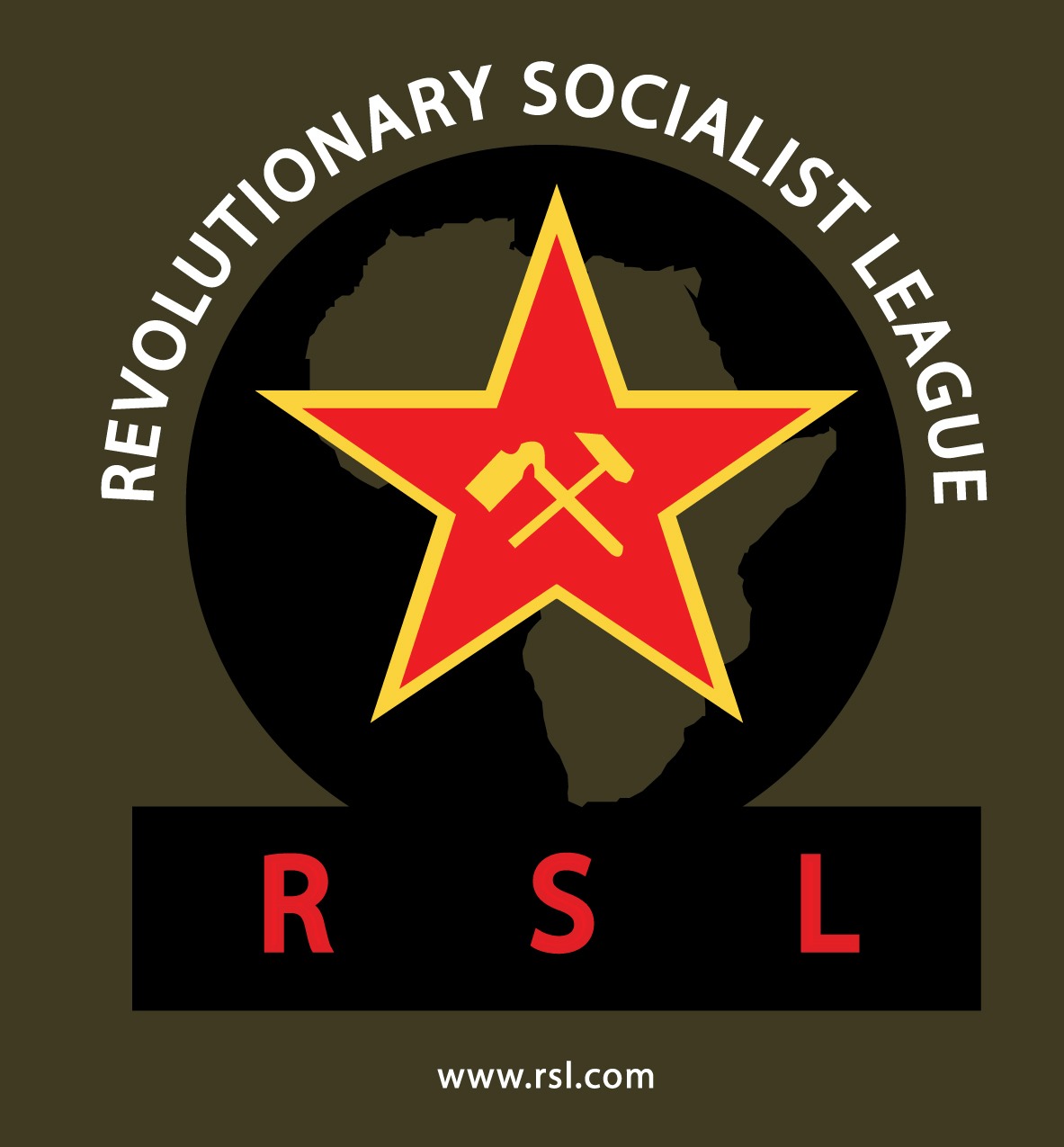
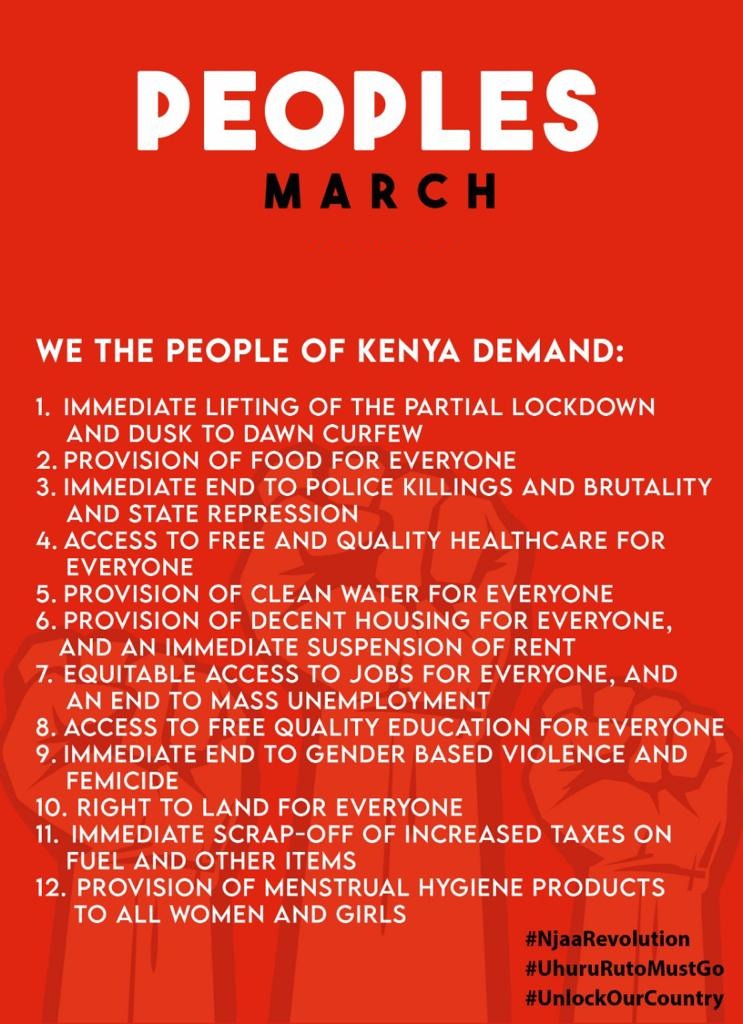
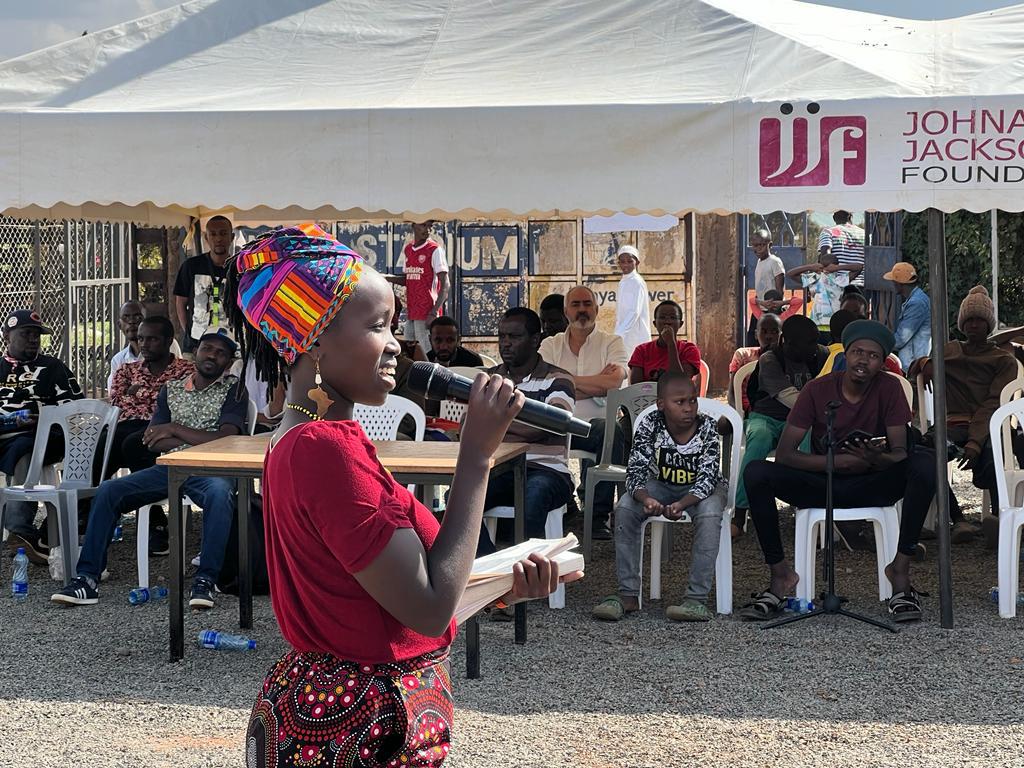
You consider Pan-Africanism very important: can you tell us what it means and what your position on is?
Pan-Africanism was developed by Africans in the diaspora, mainly in the Caribbean around the late 19th century. At that time it was a call for the unity of people of African descent. Then it became a call to return to Africa and later evolved into a series of meetings in Europe, where the first Pan-African Congress was held in 1900 in London, led by Africans from the Caribbean and North America.
The fifth congress, held in Manchester in 1945, was attended by some of whom would become Africa’s first presidents, including Kwame Nkrumah of Ghana and Jomo Kenyatta of Kenya. There the independence of Africa began to be considered as an objective.
It is a movement that started with an idea of trying to unite as Africans, later translated to an idea of taking Africans back to Africa and later became a movement to fight for the independence of the African continent.
After Ghana became the first African country to gain independence in 1957, the founding president said that Ghana could not be free until the of Africa could be free. It became a rallying call to other people fighting for independence.
Independence was won through two different ways in Africa: some countries went through armed struggle, others through negotiation. In Kenya it was won through armed struggle, but the negotiators usurped power.
In the late 1950s and early 1960s, the concept of Pan-Africanism started changing, because people began to realize that it is not effective to have our freedom if other Africans are not free. In East Africa we had Tanzania gaining independence in 1961 and the founding president saying, “we can postpone our independence until our sister countries Kenya and Uganda are free.” So the 1960s gave Pan-Africanism a new identity. It becomes a Pan-Africanism of unity and social togetherness of Africans, of the idea that one people are not free while other peoples are not free. At the same time, we also had those whose concept of pan-Africanism replaced the old colonial forms with the African elite that came to power in most of the countries where the negotiations took place.
Kwame Nkrumah by then understands that the unity of Africa cannot be just unity for all, for the elites and the common peoples, that unity has to be based on class. He was now calling for class struggle, he says that it is not enough to have just independence under neo-colonial governments.
The kind of Pan-Africanism that we are now trying to continue and expand is the one envisioned by Kwame Nkrumah, a revolutionary Pan-Africanism. It is an ideological concept that tries to bridge the gap and create an understanding between Africans, people who may have been born outside of Africa, and those who believe in a free, liberated and socialist Africa.
Pan-Africanism is essentially African people coming together, unifying Africa. Within Africa, of course, you have those who lean towards the interests of the bourgeoisie; they are the people who maintain Africa as it is, divided. Revolutionaries who are Pan-Africanists are those who recognize that indeed African people need to come together, break away with imperialism and neo-colonialism. So revolutionary Pan-Africanism is anti-imperialist and anti-capitalist in character. Revolutionary Pan-Africanism is the unification of the whole of Africa into one unified socialist state.
There are three kinds of Pan-Africanism today. The revolutionary, anti-imperialist, anti-capitalist, anti-Zionist and socialist. There is a reactionary Pan-Africanism, which is supported by the leaders of the African states, which is neither anti-imperialist nor anti-capitalist, and just says that because we are Africa let´s unite. It is a bourgeois Pan-Africanism that prefers an Black manufacturer who is exploiting people the same way, instead of a US manufacturer. And there is also a nationalist pan-Africanism, which comes from a debate since the 1960s, from a group of people that denied the presence of class struggle in Africa. There was a school of thought called “negritud,” it was championed by the first president of independent Senegal, which argued that Africa is socialist in nature and therefore we just need to promote African values. This school of thought responds to the class position of those who support it: the petty bourgeoisie.
It is important to know that Pan-Africanism is extremely popular among the masses. Almost all African people want to come together, they believe that doesn´t make any sense to have boundaries separating us. So the bourgeois leaders in power recognize this and pay lip service of African unity, but they are not genuine about it, because they are complicit in the disunity of Africa.
We are revolutionary Pan-Africanists. Our proposal is a unified socialist Africa. We believe in an anti-colonial Pan-Africanism, because we need to shun colonialism for us to have a united Africa and an anti-capitalist Pan-Africanism that can only be achieved with a socialist revolution. We belong to and are actually the leadership of the Pan-African Movement Kenya Chapter and we organize symposiums and activities on African Liberation Day.
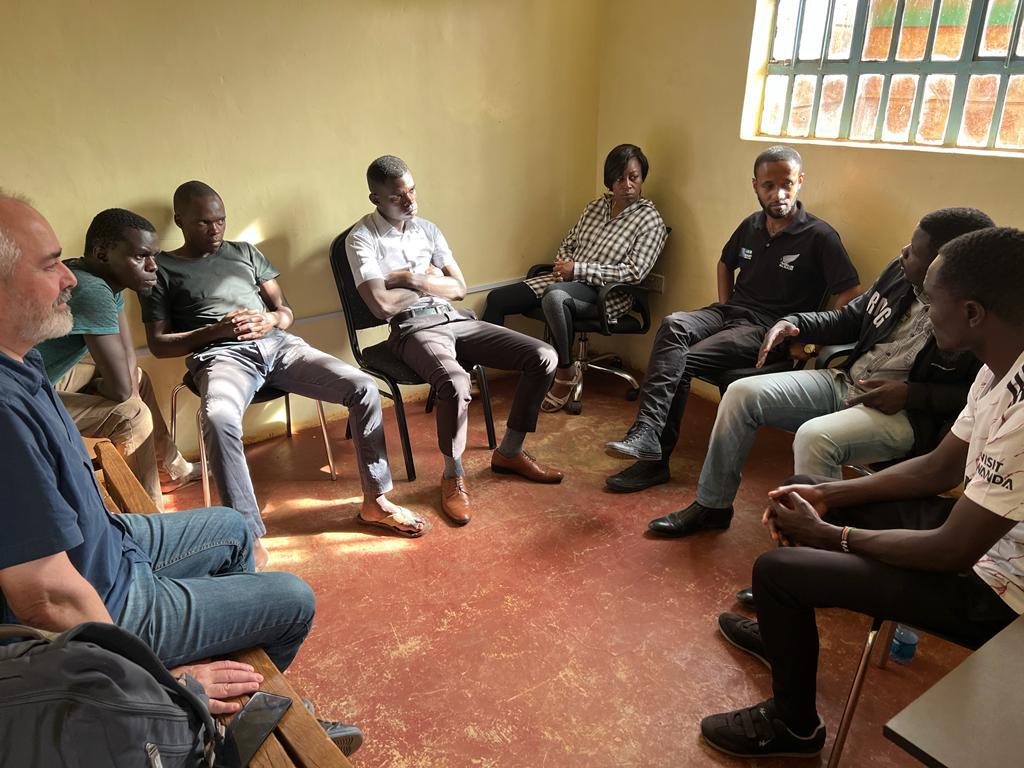
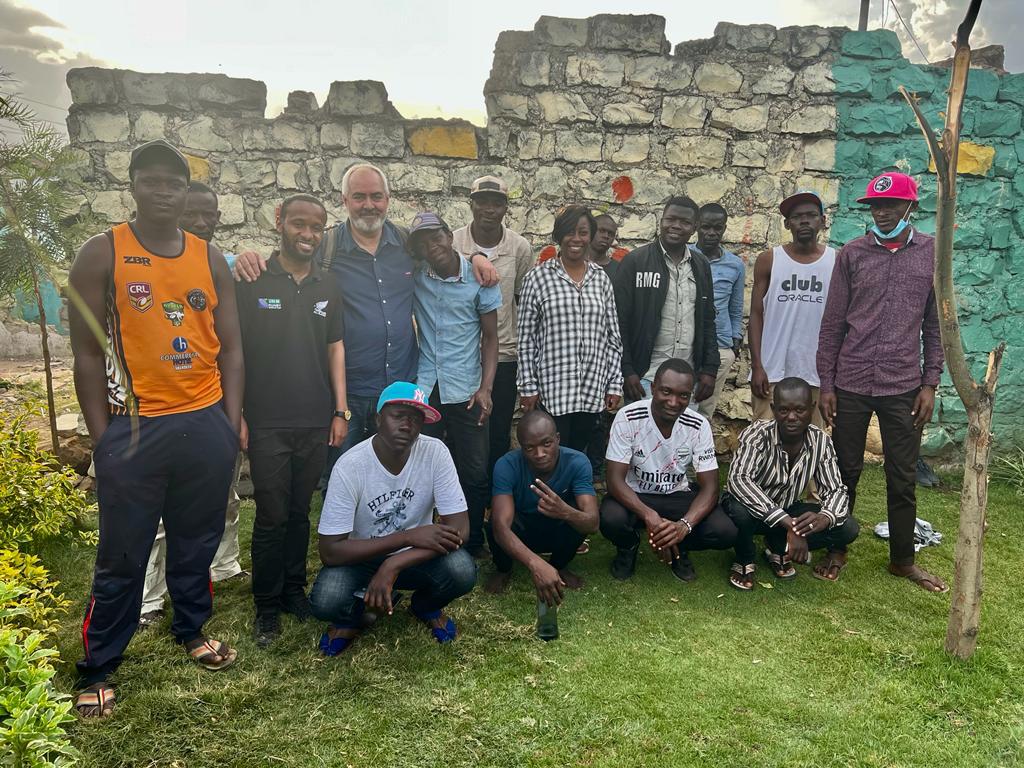
What is the RSL, what led you to found it and what trajectory have you made so far? What are your proposals? What activities do you carry out?
The Revolutionary Socialist League (RSL) was founded in August 2019. It was previously called the Young Socialists League, and had been for several years the Youth League of the Communist Party of Kenya, which until January 2019 was called the Social Democratic Party of Kenya.
The party had been too bureaucratic with the Youth League. We had so many ideas and suggestions to further the struggle, but this was subjected to bureaucratic processes that discouraged us. There was a disconnect between the party leadership and the rest of the members, not just the youth.
There were also some fundamental disagreements. For example, the chairman of the Central Committee participated in the elections in 2017 and endorsed the President Kenyatta because he wanted to be appointed to a position in the government. And he endorsed him and was appointed as a political adviser to the governor of his county. And this was done without even consulting the party. So then in the university our members would ask us, “Hey, did we just endorse the president?”
Also the issue of China. The party held the position that China is not imperial power because it has a Communist Party. Which showed a lack of understanding not only of the global situation, but even of fundamental dialectics.
The reason we were able to keep the organization intact when we broke away as the Youth League is because we had been autonomous. We were the youth of the party, but we organized so many activities independently, we had been recruiting people into the Youth League directly, and that was a sort of shield once the split occurred.
The RSL is a revolutionary organization, scientific socialist organization. What we aim to achieve is a socialist revolution in Kenya, in Africa and in the whole world. The strategy to do that is to organize the masses, to organize a vanguard that will lead the masses to achieve just that. This requires working together with like minded revolutionary socialist organizations around the world to organize the world socialist vanguard.
The RSL is organized in cells; every member of the organization is a member of a cell that meets every week. Cells are the basic unit of organizing, because it is where we discuss ideology and the tasks are organized. Our activities include the conducting of political education. We have been able to organize popular campaigns around various issues.
When the pandemic started, for example, we organized People’s March, which is an ongoing campaign, based on twelve points, through which we hope to draw in layers of working class Kenyan to struggle in a popular resistance against the regime and the system in general.
So: if you don’t have food, join the March; if you don’t have healthcare, join the March, if you don’t have jobs, join the March, if you cannot access menstrual hygiene products, join the March, if you do not have access to quality education, join the March, etc.
We do political education to inculcate ideas and popular struggles to popularize the organization and recruit, and also to increase class consciousness among the working class in Kenya.
We have come a long way in a short time. Evidently this message is very popular among the masses. Every time we go to visit people, or they have heard of us, they want to join this organization. We currently have about 2,000 card-carrying members and about 2,000 others who are candidate members. We have been able to create at least a cell in 35 of the 47 districts of the country. And this is not the end: we want to build a very large mass movement that will be the vanguard party to lead the revolution.
Financial resources have always been a very belittling factor to our growth. We raise funds with member contributions. Every member of the Central Committee contributes US$50 every month. The leadership of every cell contributes at least US$5 for the running of their own cell. Members from the informal settlements, who live on less than a dollar a day, help with community services. We also have friends of the party who contribute.
A pillar of our intervention is in the Social Justice Centers that organize activists in the communities and informal settlements in defense of human rights. They organize around injustices being committed in the communities. Many of our members are active in the Social Justice Centers, and we have RSL cells in many of them, where we conduct political education classes. Our members lead many Centers and several of our members are in the leadership of the national network of Social Justice Centers.
There are also Women’s Social Justice Centers that specifically organize around the issues perpetrated against women. We have a lot of gender based violence, rapes, femicides. Our comrades give such oppression a political identity, pointing out that the violence occurs because of the failure of the political system. They combat bourgeois feminism, radicalizing women and giving a class angle. Today most of the activists of the Women’s Social Justice Centers are members of the RSL Women’s League.
The Ecological Justice Center is currently led by one of our comrades. The Ecological Centers are very important, in the communities that have dump sites next to them, they organize many people in projects to clean, plant trees along the river banks and recover spaces, and our comrades also conduct political education there.
As part of our organizing, we also visit workers in industrial areas. The unions are very weak here, so we go directly to the workers. Last year we went to see some Unilever tea farmers. Their working conditions are very poor, they have no medical cover, no housing, they are paid very little and they are concerned about the machines that the company wants to introduce to render them jobless. We meet with them biweekly, and a group has joined our organization. In other areas we have cells of sisal farmers, sugar cane farmers, teachers.
Would you like to add anything else?
Internationalism is one of the pillars of our manifesto, which is published in several languages on the ISL website. No revolution can last in isolation. We need to find like-minded comrades all over the world and that is the main reason why we join the International Socialist League. We are really excited to work with you, it means a new chapter in Africa.
We want to contribute ideas from this side of the world. We want to discuss Pan-Africanism, publish articles and contribute to the ISL program. We also want to take part in the activities, because the fundamental ideas of the ISL are also our ideas.
We have participated in the ISL Congress, we have studied the documents and we fully agree with them. We are going to contribute to the debates and translate the documents into Swahili so that more comrades can go through them. But the most important thing is to realize that internationalism is the most fundamental aspect, because the system is global, and the revolution also has to be global. You cannot have socialism in one country, and to have an international socialist revolution it requires an international organization, and we believe that what the ISL is.
From Kenya, we send our revolutionary love and gratitude to ISL comrades across the world, and our utmost solidarity with your cause. We salute your resilience and your faithful commitment to the struggle, and we offer our utmost commitment that we will continue fighting revolutionarily, with all weapons necessary to defeat imperialism, capitalism, neo-colonialism, Zionism and all forms of oppression.








